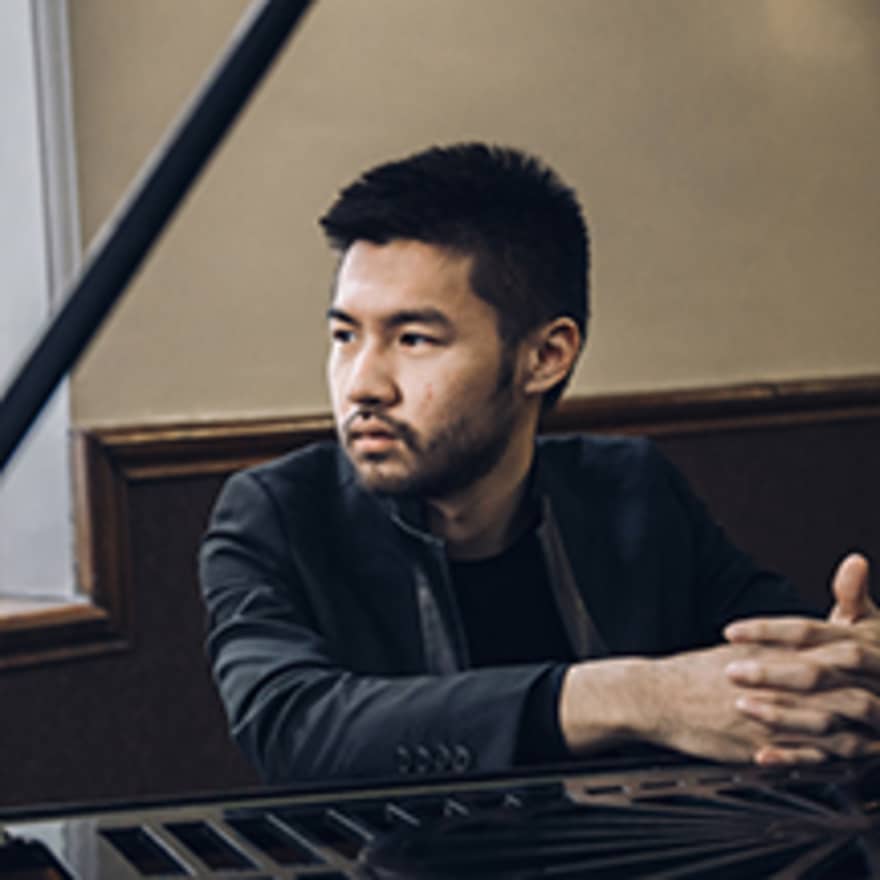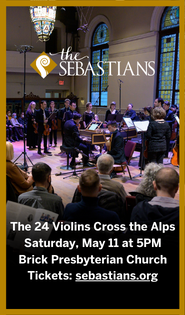Conrad Tao makes a stormy and singular Carnegie Hall debut

Conrad Tao began as a prodigy on both the violin and piano–he played Prokofiev’s Piano Concerto No. 3 in concert at age 13–and as a composer. A trap often awaits many such prodigies, though, in that many who have achieved so much at such an early age, never fully mature artistically.
Tao, now at the ripe age of 25, has not so much bypassed the trap but ignored its existence completely. As a pianist and composer, his recordings show an artist who challenges himself, eager to see what lies beyond the horizon. His Carnegie Hall debut Wednesday night, a performance in Weill Recital Hall, showed his prodigous talent and also hinted at—as much to himself as to the audience—what paths await.
His program mixed contemporary music with classics from the 18th and 19th century, a stylistic and aesthetic mix of Bach, Rachmaninoff, Schumann, Elliott Carter and, representing the living, David Lang, Julia Wolfe, and Jason Eckardt.
The cliché of the young, firebrand musician is that they are committed to the present and future and disdain the past, it’s all épater le bourgeoisie. One of the fascinations Wednesday was hearing how Tao fit himself into the past and present.
In the first half, he played two of Lang’s memory pieces, musical epitaphs for dead friends. “Cage” and “wed” opened and closed the half, and were surprisingly inconsequential. Part of that is the music is so simple to play, slow arpeggios and lines mixing and bouncing off each other to create a rippling yet still sound, that there’s not much for the pianist to do. Tao played the music well, but one couldn’t tell just how well he played the piano.
When he played Bach’s Toccata in F-sharp minor, BWV 910, and Carter’s Two Thoughts About the Piano, one witnessed just how great Tao can be at the keyboard. These were wild in the best sense. The Toccata was full of stormy intensity, Tao playing the long, fantasy-like introduction with such fervor that the music sounded close to Liszt.
Tao’s commitment was total, coming through in a physical expression. This was not hand-waving, but a near-melding of his body with the piano. His touch had unusual weight, not a heavy feeling but supersaturated with force. While this was too much intensity for Lang’s delicate, floating textures and suspended dissonances, it opened up the visceral expression latent in Bach.
But it was also limiting. A structural, musicological approach to Bach is the norm, and it was exciting to hear his Dionysian side. It was also exhausting, as unbalanced toward the body as it can be toward the mind. At times, Bach and Tao were talking with each other, at others past each other, the composer’s language incompatible with the pianist’s.
His performance of Carter’s Two Thoughts, though, was astonishing. Tao recorded this music (along with the Lang) on his “Pictures” album, and there the “Intermittences” section was slicing and stabbing, the “Caténaries” skittering and anxious. Live, and perhaps with the influence of the sold-out crowd’s vocal enthusiasm, both were explosive. Tao’s combination of velocity, articulation, and weight beggared belief–his playing was like a Ferrari equipped for the post-apocalyptic world of Mad Max.
Like the Bach, the performance was thrilling but also a little alienating. As much as it was truthful and fulfilling to hear so much of the body in Carter, the composer often got lost inside the sheer sound. The same mix of enlightenment and dead ends came through Julia Wolfe’s Earring which, like Lang’s music, was too small to contain Tao’s personality, and Rachmaninoff’s Étude-tableau in A minor, Op. 39, no. 2. In the latter, he was unable to filter expressive complexity and ambiguity through his pianism.
The second half began with Jason Eckardt’s Echoes’ White Veil, and performer and composer came together with complete sympathy. This is brilliant music, as close as anyone has come to capturing the genius of Cecil Taylor’s playing on paper. It is a spiky reaction to a prose-poem by W. S. Merwin that Tao read before he played.
Beginning with the simplest means, a repeated note and some intervals, the music quickly ran riot across the keyboard, and Tao ran with it. He and Eckardt heard it all the same way, as something to throw oneself into, seeking some sort of transformation or catharsis. The intensity of the expression opened up windows of dark beauty.
Tao ended withe Schumann’s Kreisleriana, and, perhaps with much of the adrenalin burned off, this was excellent. Tao is made for the stormy side of Schumann, the fraught, internalized anguish. He showed he’s also made for the poetic side as well, though that came off less as poetry and more—refreshingly—as earthiness. That is an important and undervalued quality in Schumann, when the sweetness is not lofty but simple, normal.
In slow sections, like “Sehr innig und nicht zu rasch,” Tao’s natural agitation fell away into warmth and peace, and “Sehr aufgeragt” and “Sehr ledhaft” were fast and robust without being manic. This was a natural performance, Tao translating Schumann with meaning and personality without ever getting in the way.
The audience had come out to see and support the pianist, and they were ecstatic, so he owed them an encore. He gave them something one is certain has never before been part of a classical recital, the song “True Love Will Find You In The End,” by the recently deceased outsider musician Daniel Johnston. It was clear only the younger crowd knew what to expect, but when Tao followed a gorgeous opening improvisation by singing the song as he played, everyone knew its touching, tender hope.
Cellist Sheku Kanneh-Mason and pianist Isata Kanneh-Mason play Beethoven, Lutoslawski, Barber, and Rachmaninoff, 7:30 p.m., December 11, in Weill Recital Hall. carnegiehall.org








Posted Nov 26, 2019 at 9:44 am by Chuck
Judging by your description, Tao’s Bach sounds like that of the fiery young Glenn Gould.